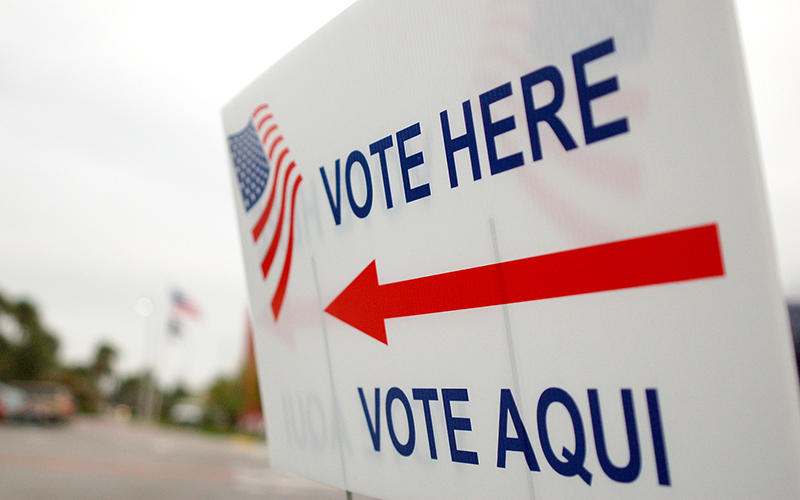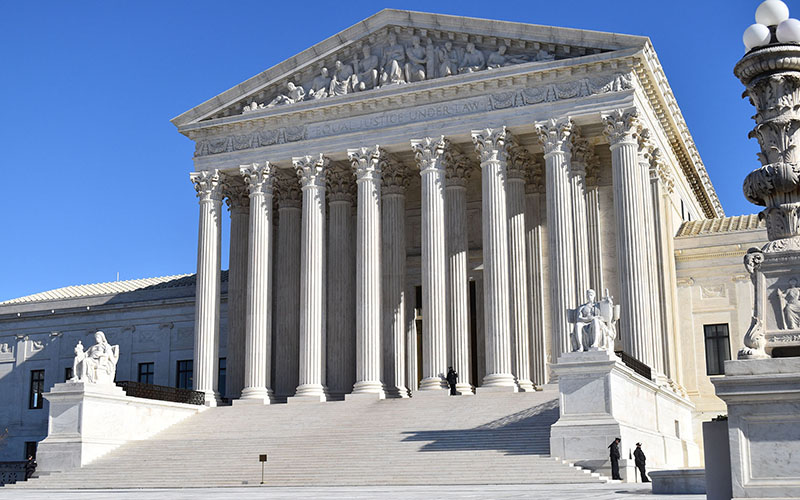WASHINGTON — Democrats looking to win the Latino vote should take their cues from Arizona, which was held up as a “shining example” of how it’s done by the author of an election post-mortem on the Latino vote.
Nuestro PAC said months of advance grassroots work by organizations like LUCHA and Mi Familia Vota paved the way for an increase in Latino voting in Arizona, a historically red state where Democrat Joe Biden eked out a presidential victory by less than 11,000 votes.
Nuestro PAC founder Chuck Rocha said the advance work let Arizona avoid the fate of Democrats in other predominantly Latino areas where voters chose former President Donald Trump, such as Florida’s Miami-Dade County and the Rio Grande Valley in Texas.
“Republicans built a multiyear-long program, Democrats waited until the last 30 days” to start running Spanish-language ads in swing districts, Rocha said.
Other political analysts agreed that Latino registered voters – about 809,000 people who account for a quarter of all registered voters in the state – played a part in the state’s shift toward Biden. But it was far from the only factor, they said.
A report by OH Predictive Insights said the Biden campaign had historic amounts of cash to spend, raising more than $950 million nationally from July 2019 to October 2020, compared to about $607 million for Trump in the same period. In Arizona, Biden spent $30.4 million on TV ads to Trump’s $9.3 million.
Mike Noble, chief pollster for OH Predictive Insights, said that while Latino voters played a big part in the final results, they were not the deciding factor.
“Why Arizona was a battleground state was clearly due to the suburban shift rather than specifically Latinos,” Noble said. He said many suburban voters, especially wealthy and educated women, viewed the election as a “referendum on Trump” rather than a full break from the Republican Party.
But Rocha said organizers in Arizona began working with Latino voters long before Trump was in the White House.
He said advocates began by fighting SB 1070, the get-tough, “papers please” law that allowed police to ask for proof of citizenship from anyone they stopped and which led to racial profiling by many, the Maricopa County Sheriff’s Office in particular. And advocates had longed battled then-Maricopa County Sheriff Joe Arpaio, a leading proponent of the law and of racist behavior by his department.
From there, Rocha said, it was easy for advocates to switch gears and begin pushing election campaigns. That also left ready-made “validators,” local activists who could “validate this old white guy who nobody knows,” he said of Biden.
“You had a nirvana of Latinos, on the ground, self-organizing and fully funded starting years in advance,” Rocha said.
But that perfect storm did not necessarily lead to a blue wave, Noble said.
Arizona did vote for a Democratic presidential candidate for the first time in decades. And it sent two Democrats to the Senate for the first time in almost 70 years when voters ousted Republican Sen. Martha McSally in favor of Democrat Mark Kelly.
But that shift did not go all the way down to county and state races, Noble said. Republicans only suffered a net loss of one seat in the state Legislature, with the GOP maintaining slim two-seat majorities in both the House and Senate.
In some parts of Maricopa County, McSally did better than Trump, particularly in wealthier, whiter and more educated parts of the county like Paradise Valley, Scottsdale and Ahwatukee.
Diana Castañeda, communications director for BOLD PAC, a political action committee to elect Latinos to national office, said she is concerned that Republican efforts to enact stricter voting laws across the country will disproportionately harm Latino voters in 2022.
“These tactics are targeting Latinos and people of color,” Castañeda said. “They are trying to do everything they can to suppress Latino voters.”
But she hopes Latinos will remember who supported them during the pandemic and economic fallout, and credit Democrats for stimulus checks and the vaccine rollout in the 2022 elections.
Rocha said he is confident the trend will continue.
“All this stuff that worked right in Arizona, it was because of Latino consultants, Latinos on the ground and Latinos at the state level,” he said.


